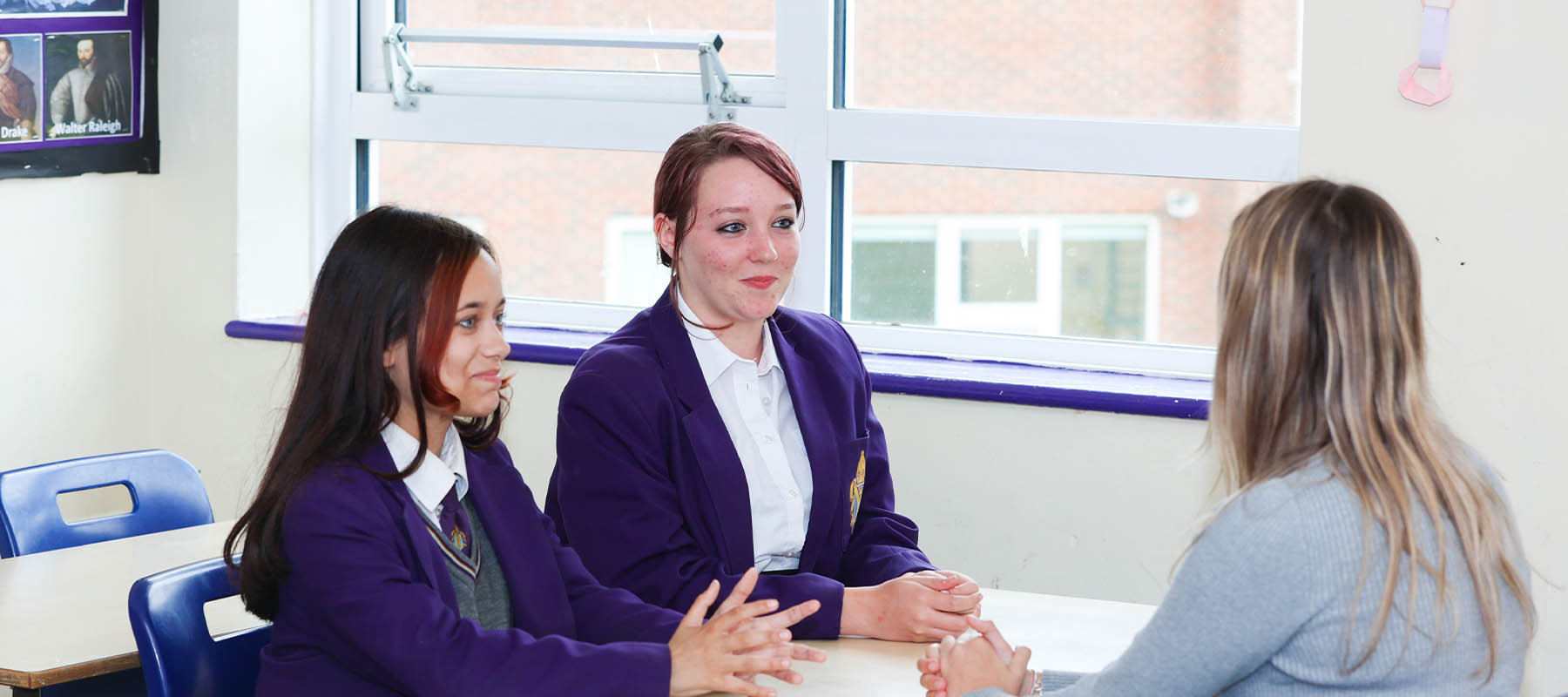Geography
The Geography Department at Townsend School has a vision to provide a full and contemporary Geography curriculum to our students. We want our students to be able to understand the human and physical world and the interactions between these systems.
We would like our students to “Think like Geographers”, by being able to see and use information to interpret the world around them, to care for the world around them and to understand how our actions have consequences. We want students to understand their place in the UK and the world and their role within it, to be conscious of sustainability, equality and diversity and how to be responsible citizens.
Our curriculum will both reflect and learn from the diverse cultural mix of our school and community and also help to enhance our student’s cultural identity and understanding of their place in society and wider communities. They will learn this through the wide range of topics and themes covered and the reference to different places. We will also tackle difficult issues which will give the pupils the opportunity to discuss and debate social, moral, cultural and spiritual questions.
Course Description
The Geography Department has a vision to provide a full and contemporary geography curriculum to our students. We want our students to be able to understand the human and physical world and the interactions between these systems.
This in short is to enable our students to “Think like Geographers”, by being able to analyse information to interpret the world around them, to care for the world around them and to understand how actions have consequences. We want students to understand their place in the UK and the world and their role within it, to be conscious of sustainability, equality and diversity and how to be responsible citizens.
Our students will learn about human and physical processes, geographical skills and places, contemporary issues, have a sense of time and spatial scales and be able to understand the complexity of life on Earth.
Programme of Study
Year 7
- Map Skills
- Africa
- Economic Activity
- Earth Science
- Urbanisation
- Coasts
Year 8
- Development
- Middle East
- Rivers
- Population
- Natural Resources
- Tectonics
Year 9
- Ecosystems (case study on Russia)
- Cold Environments and Glaciation
- Asia
- Decision Making
- Weather and Climate
- Climate Change and Sustainability
Assessment
Students are assessed at the end of each unit each half term. Assessments take a variety of forms so that all learners have the opportunity to practice different assessment techniques. For example, assessments may be tests, extended writing tasks, presentations or projects.
Home Learning
Throughout Year 7, Year 8 and Year 9 students receive one piece of Geography homework per fortnight. All homework is designed to allow students to develop a deeper understanding of the learning covered in class or research a further topic. Classroom teachers will provide students with clear instructions for each piece of homework set along with a success criteria.
Where can Geography take you
- Geography is a popular and useful subject because it spans the sciences, the arts and the humanities in terms of skills, knowledge and understanding. It is therefore thought of highly by employers, colleges and universities.
- It helps to develop your written and verbal communication skills and heightens your graphical, statistical and analytical skills.
- It also teaches specialist skills that are applicable to everyday life like map reading, interpreting images/graphs/maps and so on.
- In geography you will work alone, in pairs and groups and with people outside of your friendship circle, you will therefore be highly employable with many skills, substantial knowledge of the world we live in and you are likely to be comfortable working with others and talking to people. This is why Geography is so valued by employers and higher education.
Further Study
GCSE Geography
Careers
There are many jobs related specifically to geography such as:
- volcanologist
- teacher
- cartographer
- GIS programmer
Due to the skills set acquired there are many wide-ranging jobs that studying geography can lead to, such as:
- catastrophe modeller/hazard management
- landscape architect
- journalist
- environmental lawyer
- weather forecaster/meteorologist
- town planner/designer
- wildlife management
- photographer
- business management
- retail
How can parents support their child’s learning
Encourage your child to get outdoors and explore the natural world and to be aware of processes in the human world, like economics, politics and development. Encourage your child to question the world they live in and try to find out answers. In short – be interested in the world, not just their immediate surroundings. Read or watch the news, take an interest in wildlife and habitats and issues that affect people like climate change, energy consumption and how our country and other countries are governed. Watch documentaries, wildlife and travel programmes and films located in different places. Read about far-flung places and explorers and adventures, get an atlas and study where places are in comparison to others.
- BBC iPlayer – documentaries about the natural world (Blue Planet, Planet Earth, Planets, Earth: Power of the Planet)
- You Tube – videos about hundreds of topics
- Ted Talks
- Films (e.g. An Inconvenient Truth & the sequel, Koyaanisqatsi, Erin Brockovitch, Plastic China, Made in Cambodia, One Day on Earth)
- Travel Documentaries – find out about faraway places and life in other areas of the world
Useful Links
- Royal Geographic Society (RGS) website – https://www.rgs.org
- National Geographic website – https://www.nationalgeographic.com
- National Geographic magazine – https://www.nationalgeographic.com/magazine
- Countryfile BBC – website and programme https://www.bbc.co.uk/programmes/b006t0bv
- BBC schools geography – http://www.bbc.co.uk/schools/websites/11_16/site/geography
- Geographical Magazine – http://geographical.co.uk/


